TRAINING FOR FAMILIES
TRAINING FOR PROFESSIONALS

Expert training and consultancy designed and delivered by people who are PDA themselves!
Affiliated with with PDA North America
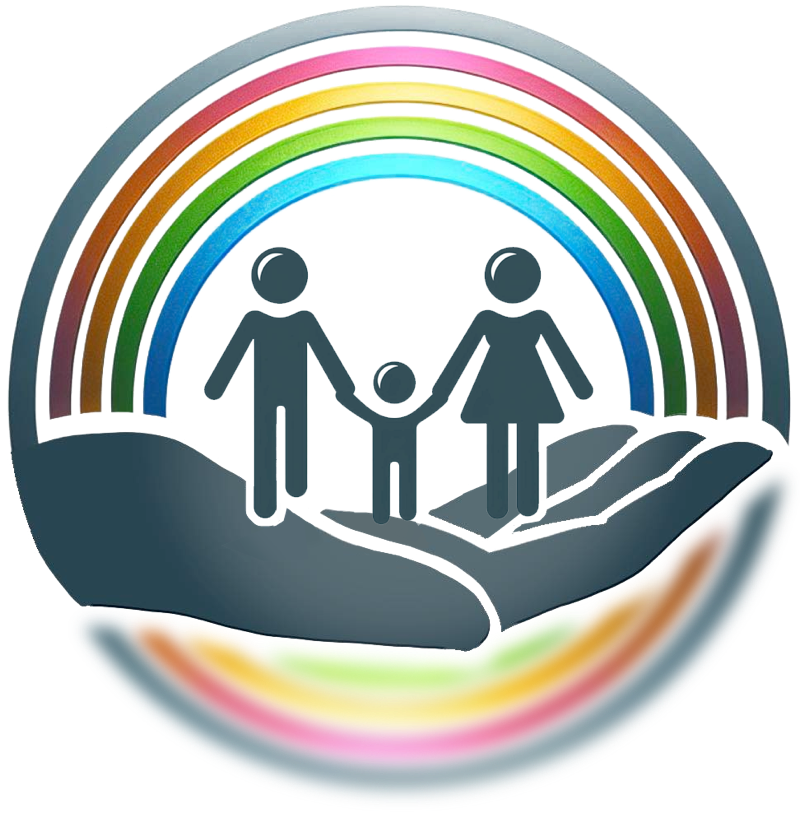
What is PDA?
PDA, which stands for pathological demand avoidance, is a genetic neurotype (brain type) which is distinguished by a cluster of traits, including:
- Entrenched “pathological” avoidance of everyday demands
- High anxiety
- High need for personal control
- Roller coaster emotions
- An interest in other people
- Fondness of novelty
- Using creative and/or social avoidance strategies
PDA people may also:
- “Mask” their anxiety and difficulties
- Be highly creative
- Have excellent critical thinking
- Have a quirky sense of humor
- Go out of their way to help people or animals in distress
PDA is often thought of as a form of autism, though its core traits and support needs are markedly different.
Without correct support a PDA child can tailspin into traumatic behavior which can place unbearable pressure on their families and cause them to fail at school

We’re here to help you
with our FIRST HAND knowledge of PDA
Between us we have lived experience of just about every aspect of PDA
And we have tried and tested methods for creating calm, harmonious relationships with PDA kids
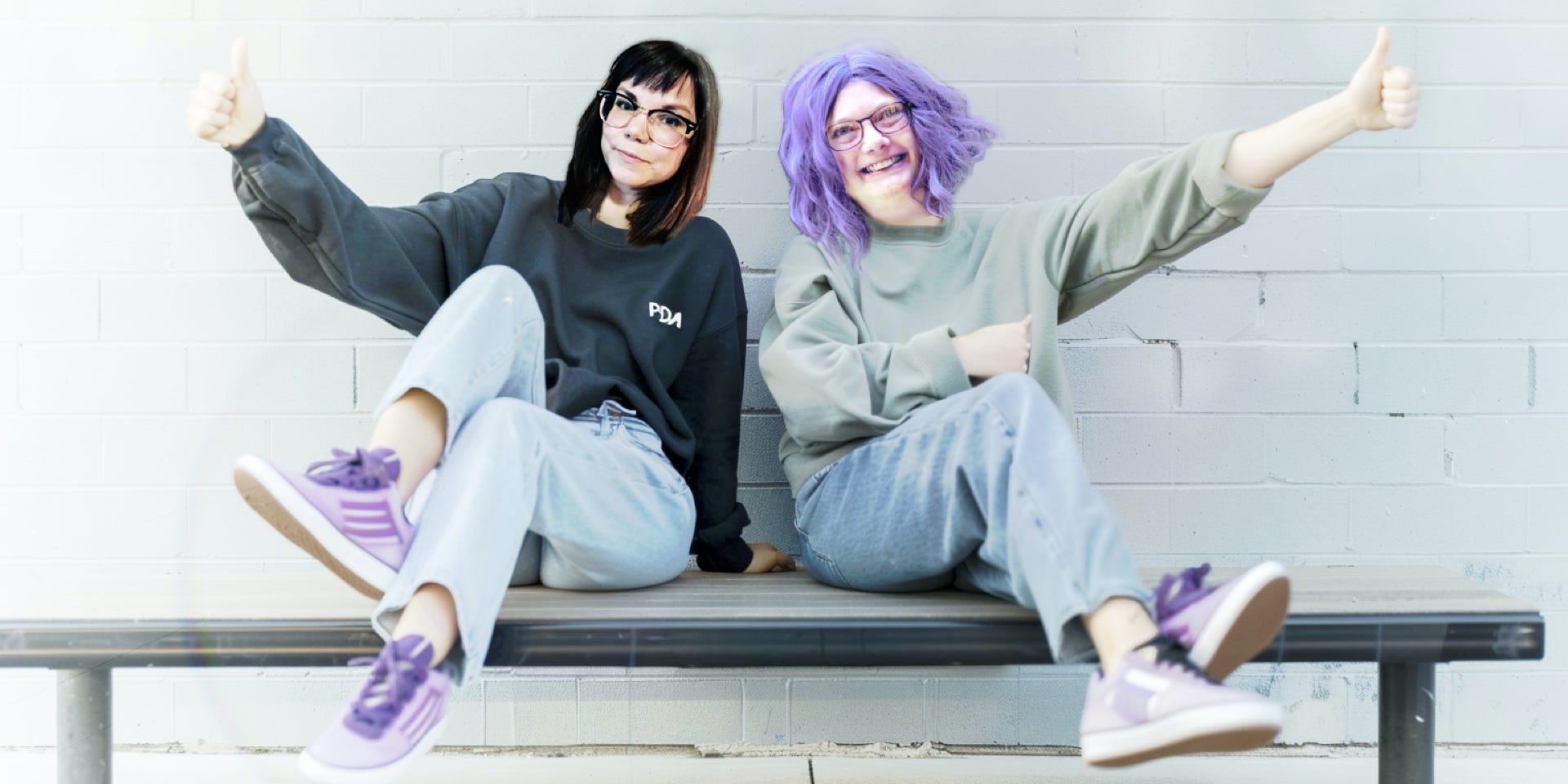
Whether you’re a parent or carer seeking a harmonious relationship with your PDA child
Or a professional wishing to better understand PDA
First Hand PDA is the perfect team to help you achieve your goal
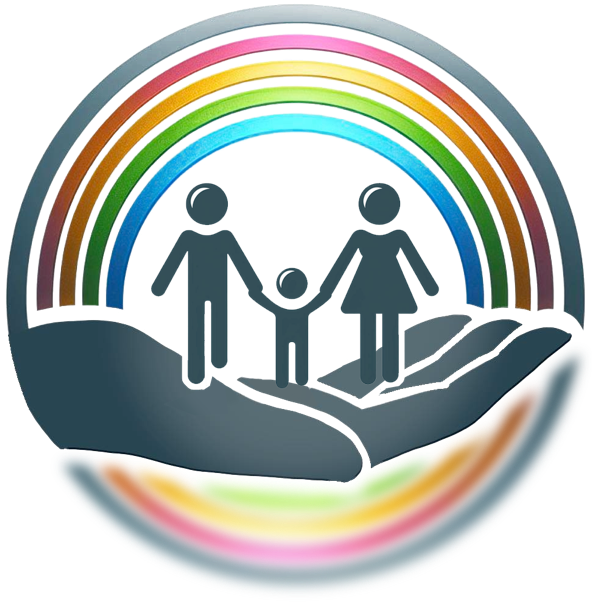
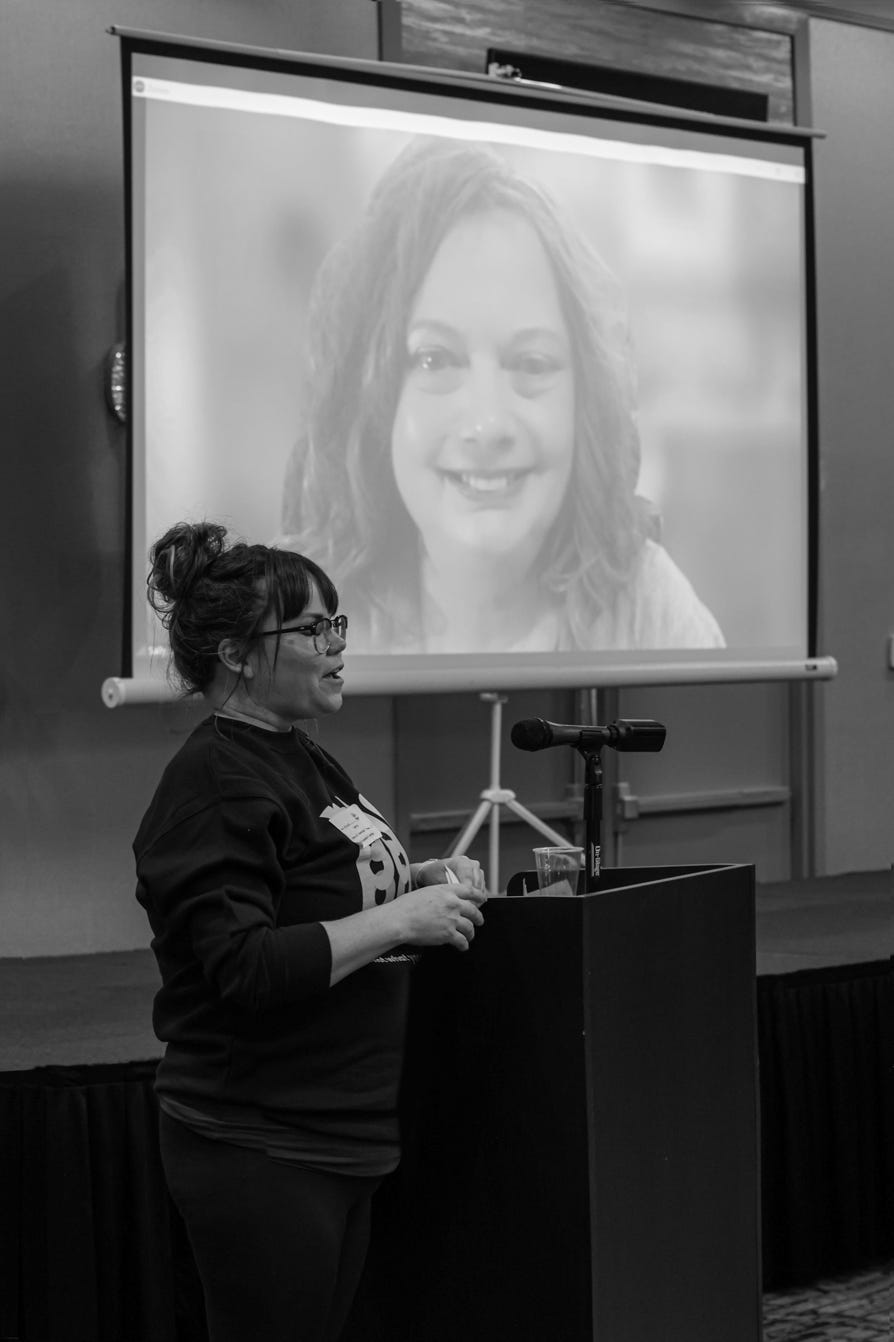
First Hand PDA is a partnership between Brook Madera (No Pressure PDA) and Sally Cat, who are two of the world’s most prominent adult PDA bloggers and advocates.
Brook and Sally teamed up after meeting online and realizing they were of the same mind with regards to exploring PDA and intuitively understanding how it works
“We’re both passionate about communicating our knowledge to others, and have tried and tested methods for reducing the stresses that come with being PDA so that families can find peace and harmony.”
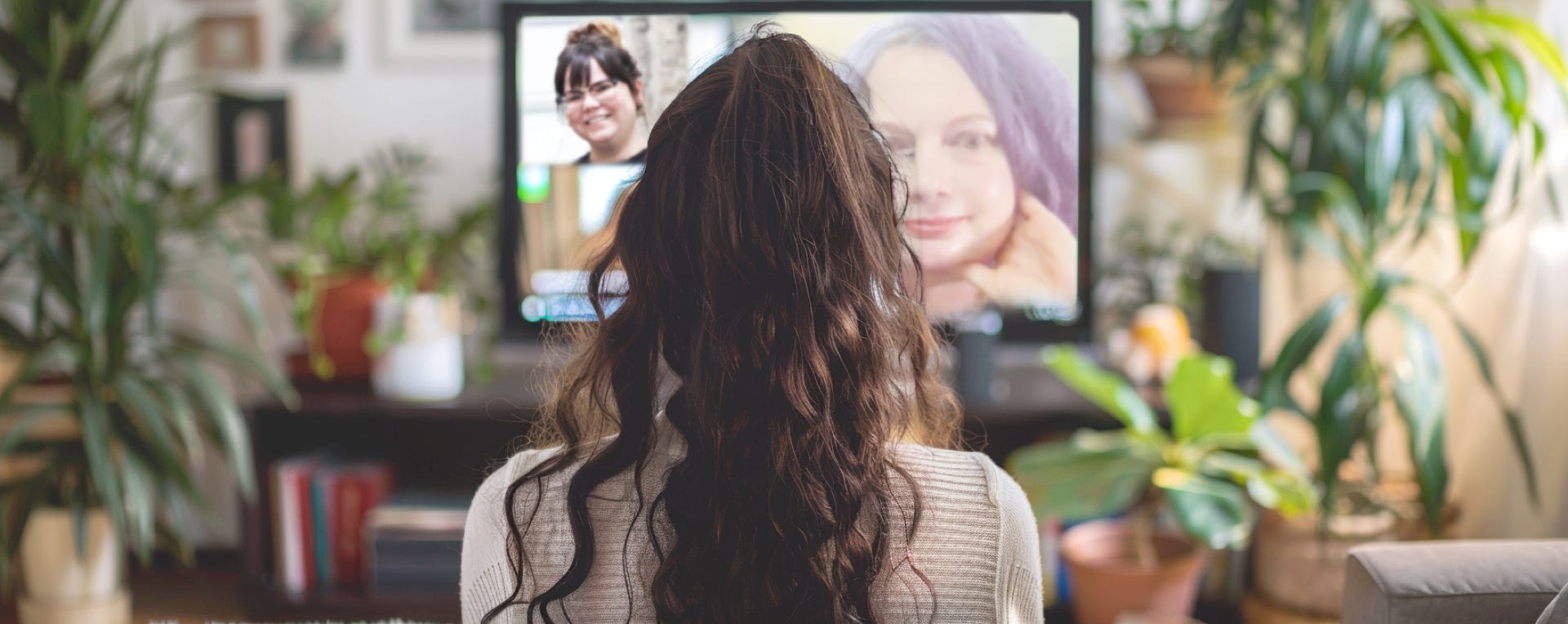
What We Do
- Deliver online video training, including live Q&As
- Give invaluable first hand accounts of what PDA is from the inside
- Donate a substantial percentage our profits to PDA North America
- Enable you to feel confident to set aside “conventional wisdom” so you can support PDA children in ways that actually work
- Explain tried and tested methods for soothing tension and avoiding meltdowns
- Provide tools for families to coexist happily and peacefully
- Offer discounts for people on low incomes
- Be honest and upfront about what we can and can’t offer
- Signpost you to trustworthy services and practitioners who can meet needs beyond our own ability to provide

Our primary focus is delivering accurate and helpful information to empower people to understand and facilitate PDA


What We Won't Do
- We won’t make you feel uncomfortable or put you down. Our PDA is not an excuse to hurt other people
- We never recommend ABA and other behaviour based “therapies”
- We’ll never claim to offer services that we’re not qualified for, or are beyond our capabilities
- We do not offer one to one support or therapy because this is beyond our professional capacity
We provide strategies that enable PDA kids to flourish

More about Who We Are

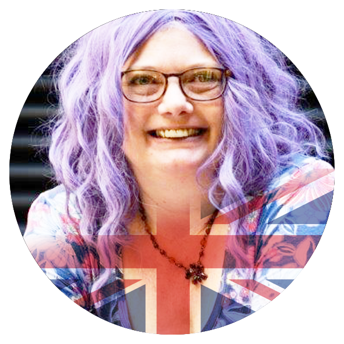
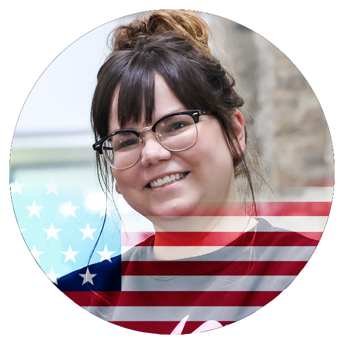
Brook
aka No Pressure PDA
She/her
Oregon, United States
Sally Cat
She/her
South-west England, UK
- PDA North America’s liaison for PDA lived experience and social media
- Consultant to Linda Murphy, author of Declarative Language Handbook
- Member of PDA Society’s Safer PDA Panel as an Expert by Experience
- Creator and sole operator of the No Pressure PDA Facebook page, which has gained 15,000 followers since its launch in 2022
“When I wanted to learn more about PDA, I read story after story to try to understand how it worked for others through human eyes. What struck me was how, on a surface level, families had different struggles. One family had a child who was compliant in school, another child melted down in front of strangers. Some children silently retreated into a fantasy world and their parents were terrified of losing them completely. Another child ran around. relentlessly teasing siblings and friends. It fascinated me that the same driver could be behind such a wide range of external appearances.
At the same time, I’d been learning about complex trauma because of personal family complexities that led to my divorce and three rattled kids. There was very little judgment in trauma support groups about violent, explosive behaviors my fellow members were capable of.
Commonalities were often noted between groups of people whose behavior could be tied to identifiable trauma and to those who, like PDA people, seemed born ready to react to the world traumatically.”
- Author of the first book about adult PDA (PDA by PDAers)
- Qualified person centred counsellor (CPCAB Level 3)
- Adult PDA consultant for PDA Society
- Member of PDA Society’s Safer PDA Panel as an Expert by Experience
- Creator and sole operator of the Sally Cat Facebook page, which has gained 43,000 followers since its launch in 2017
“I thought my adult autism diagnosis in 2013 would finally explain my life time’s worth of failures to have a career and maintain healthy relationships. But I was soon disappointed to find that my inner reality mismatched the vibe in online autism forums.
When I heard about PDA 2 years later, much of it seemed to describe me but the only accounts were of children who had violent meltdowns, and I’d never been like this myself. The only resource I found for adult PDA was a private Facebook group run by fellow adult PDAer Julia Daunt. Joining that group was like having all the lights turned on in a previously dark house. I’d never fitted in so well into any community before that one. It wasn’t just me, fellow members of the adult PDA group kept exclaiming things like, “Wow, me too!”
Over the years, I’ve gained many new insights into the hidden mechanisms of our PDA neurotype. These have been backed up my fellow PDA adults, as well as parents and professionals who’ve commented on my Facebook page and sent me private messages of thanks for helping them gain crucial insights into how PDA kids, and adults, are wired.”
Books by Sally Cat
The royalties from all these books are donated directly to PDA Society UK
We can help with PDA whatever your budget
Sign up to our now to take advantage of the amazing training and consultation packages we have available
Topics We Cover
Avoidance types
Co-occurring conditions
Control need
Demands: what are they?
Diagnosing PDA
Discipline backfiring with PDA
Eating issues and PDA
Effective strategies for PDA
Emotion blindness (alexithymia)
Faith and PDA
Masking: adaptive communication
Meltdown reduction
Mental health and PDA
Misdiagnosis
Obsessions about people (including limerence)
“Pathological” - is it a dirty word?
Personality disorders or PDA
Praise problems
Quiet space need
Quibbling
Rejection sensitivity
Role-play
Scapegoating and PDA
School refusal
Sleep and PDA
Sleep: circadian disorders
Social hierarchy (not bound by)
Therapy and PDA
Word-play and PDA
Work and PDA
To be expanded!


